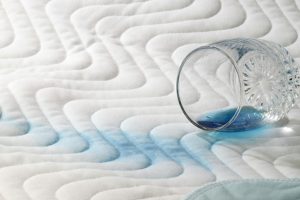 Fecal incontinence or urinary incontinence diagnosis is more likely in dementia patients. The researchers analyzed data from The Health Improvement Network (THIN) database and extracted records for 54,816 people over the age of 60 who were diagnosed with dementia along with records for 205,795 patients without dementia.
Fecal incontinence or urinary incontinence diagnosis is more likely in dementia patients. The researchers analyzed data from The Health Improvement Network (THIN) database and extracted records for 54,816 people over the age of 60 who were diagnosed with dementia along with records for 205,795 patients without dementia.
Men with dementia had had an annual rate of diagnosis of urinary incontinence of 42.3 per 1,000, compared with 19.8 per 1,000 in patients without dementia. Rates of urinary incontinence among women with dementia were 33.5 per 1,000 and 18.6 per 1,000 for women without dementia. Fecal incontinence rate among men with dementia was 11.1 per 1,000, and 3.1 per 1,000 without dementia. For women, it was 10.1 per 1,000 with dementia and 3.6 per 1,000 without the mental disorder.
Advertisement
The authors stated, “Incontinence is a common problem for community dwelling people with dementia. Providers and planners of services for dementia should anticipate high levels of need, including advice and support for carers managing incontinence. Some aspects of clinical management of urinary incontinence are different for patients with dementia, compared with those without. Further study is required to understand the clinical reasoning of healthcare practitioners providing care for this population, particularly in the use of indwelling catheters, given the known risks.”
How to manage incontinence in dementia and Alzheimer’s disease
A large number of Alzheimer’s patients go on to develop incontinence – 60 to 70 percent – but it is not an inevitable problem associated with the disease. Incontinence may not be a result of Alzheimer’s per se, but rather brought on by another underlying condition, so it’s important to address the incontinence problem with the doctor in order to determine the cause.
Management tips for those who take care of Alzheimer’s disease or dementia patients with incontinence include:
- Take the person to the toilet regularly in order to reduce accidents
- Consider dressing the person in appropriate clothing, which is easy to remove when they need to go to the bathroom
- Ensure that the toilet is easy to find and quick to get to – remove any obstacles that could be in the way
- Reduce the amount of fluids the patient consumes prior to bed
- Consider using continence aids, such as waterproof bedding, chair protectors, mattress covers, and bed and chair pads
- The person may require wearing pads or a diaper all day
- Treat any underlying cause that could be contributing to the incontinence, whether it be an infection or a stress-related side effect.
By working closely with the patient’s doctor, you can better help the person who is affected by both dementia and incontinence.
